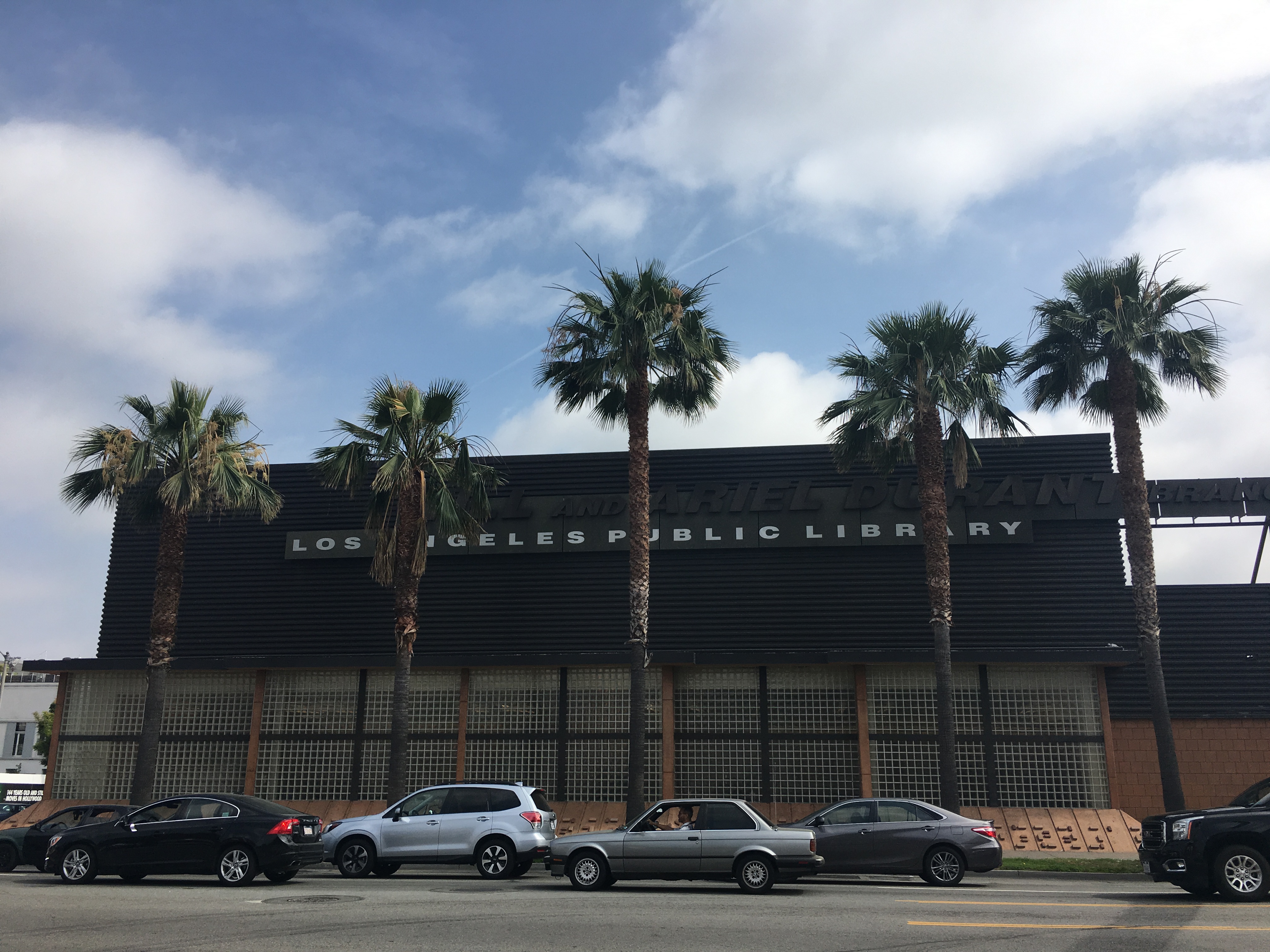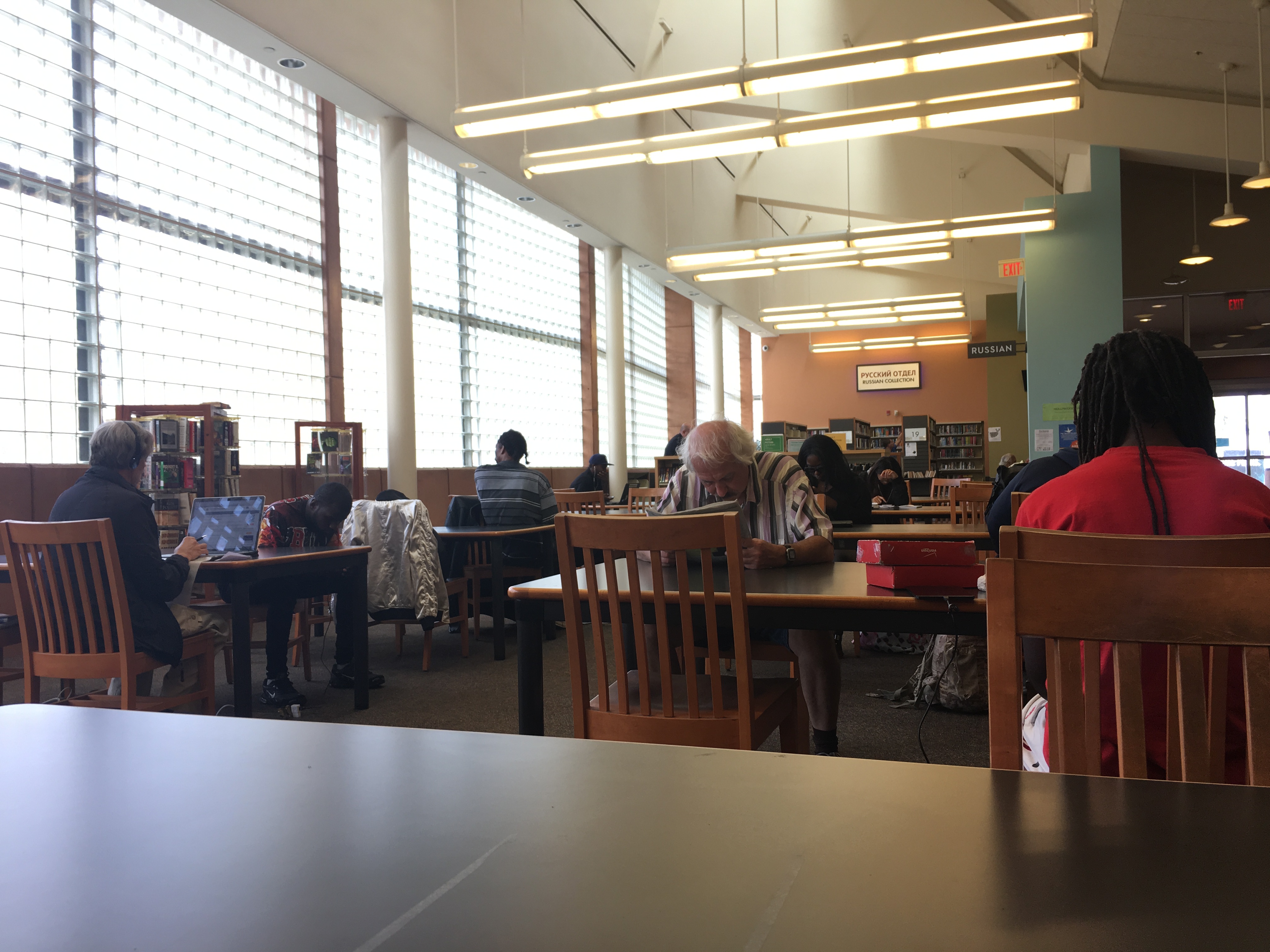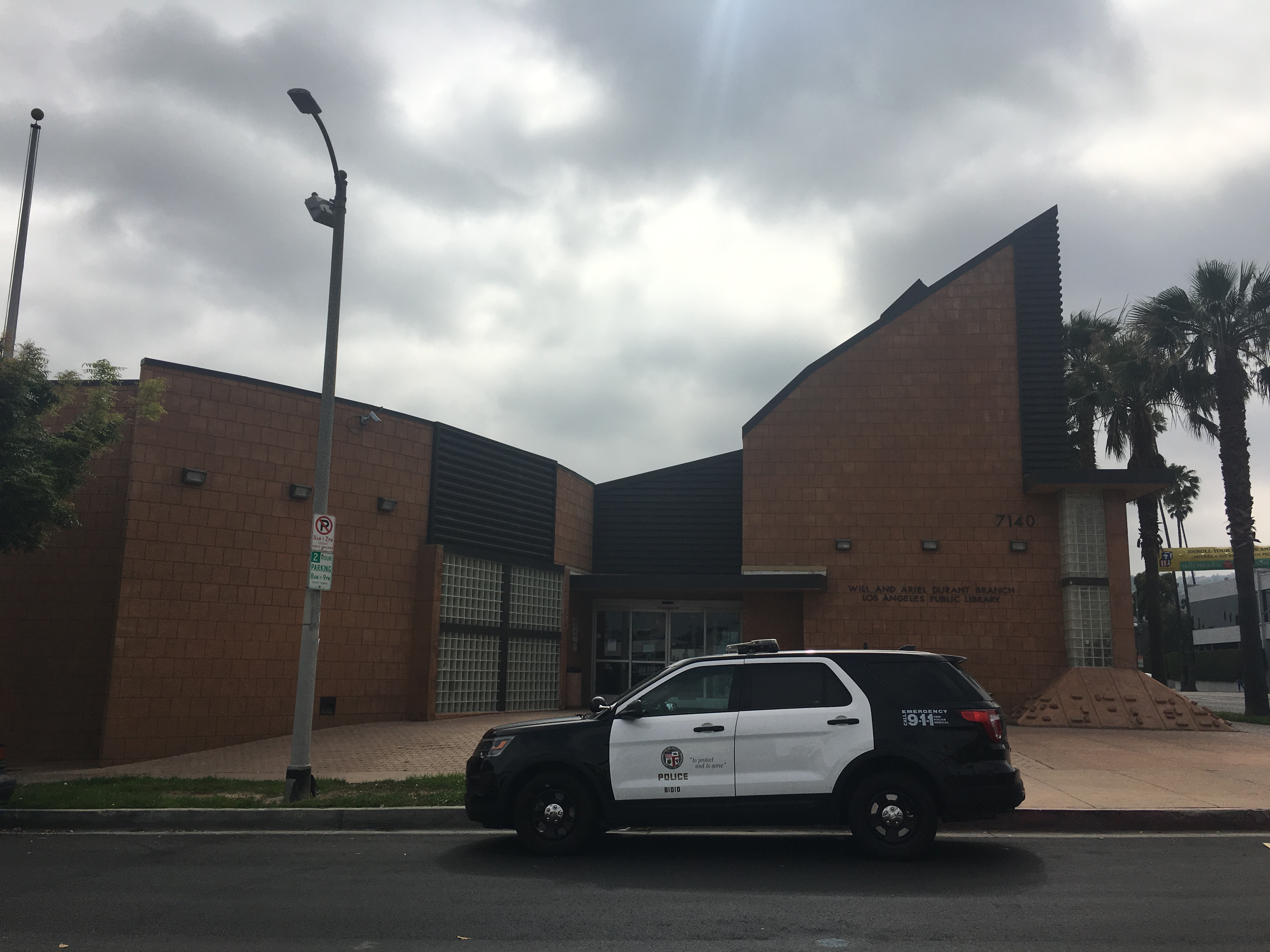The Role of Librarians Now Includes Saving Lives in the Most Unexpected Ways

By:
The Will & Ariel Durant Library in Los Angeles, California, was half-filled on a Tuesday afternoon. Students were still in school, leaving the tables and computer stations open for the dozen or so homeless visitors who came to rest, read, and charge their phones.
"A lot of people in my profession like to think that there are these fantasy libraries like you would see in a movie — small town libraries and it's just families and children and it's all quiet all the time," John Frank, senior librarian at the Will & Ariel Durant Library, told ATTN:. "That's not what this space is. It's not what it's supposed to be."
Public libraries around the U.S. often serve as sanctuaries for the homeless and addicted, forcing librarians to assume dual roles.
There are the traditional responsibilities: helping visitors navigate the alphabetized shelves, inspecting book returns for damage, stamping cards, and maintaining a distraction-free work environment. Then, there are the roles that they likely didn't sign up for: monitoring for illegal activity, breaking up fights, calling police to remove disorderly patrons, and, in some cases, administering emergency medical treatment to people who overdose in the facility.
Los Angeles Police Officer Sevdalian, who declined to give his first name, told ATTN: that fights, drug use, and prostitution are the most common incidents he's responded to since being assigned to the Will & Ariel Durant Library four months ago.
Those incidents have become less frequent since he showed up, Sevdalian said, but the problem hasn't gone away.
There's not a lot that public libraries can do to deter homeless visitors or identify individuals who come to shoot up in the bathroom. Frank said he recognizes that many libraries, "serve as de facto shelters," where crimes can occur, but he's not interested in removing homeless visitors. Rather, Frank makes an effort to meet and establish rapport among the regulars.
"The thing that works the best is getting relationships — is dealing with people," he said. "A lot of the public doesn't engage with [homeless individuals] as people. When you can give them a library experience where they come in and you know them by their name, you make them feel welcome. That social interaction is really, really valuable."
It's a humanitarian strategy that more libraries are starting to get behind.
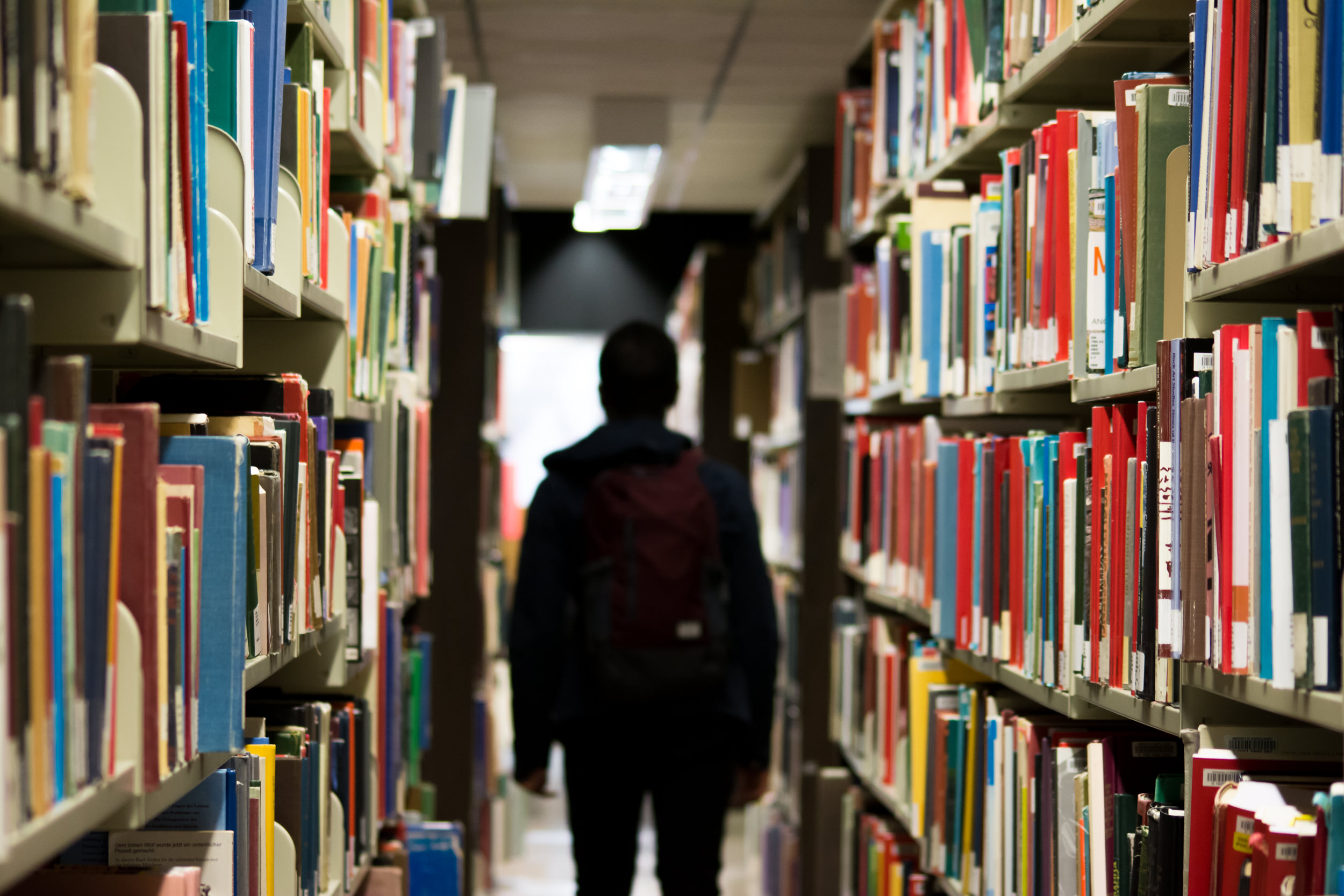 Pexels - pexels.com
Pexels - pexels.com
By accommodating homeless visitors — providing resources and programs designed to help these individuals find jobs, learn skills, and receive medical attention — libraries are able to preserve a safe work environment and empower disadvantaged visitors at the same time. Other libraries are training staff on how to administer emergency medical treatment in the event of a drug overdose, which has become all the more critical in the face of a national drug crisis.
At Philadelphia's McPherson Square Library, which sees almost daily heroin overdoses, such training has already saved lives.
Chera Kowalski, a librarian at McPherson Square, has administered the anti-overdose drug naloxone six times in the past two months alone. She's not a trained medical professional, but learning how to administer the drug has enabled her to prevent fatal overdoses in a city where wait times for emergency responders can mean the difference between life and death.
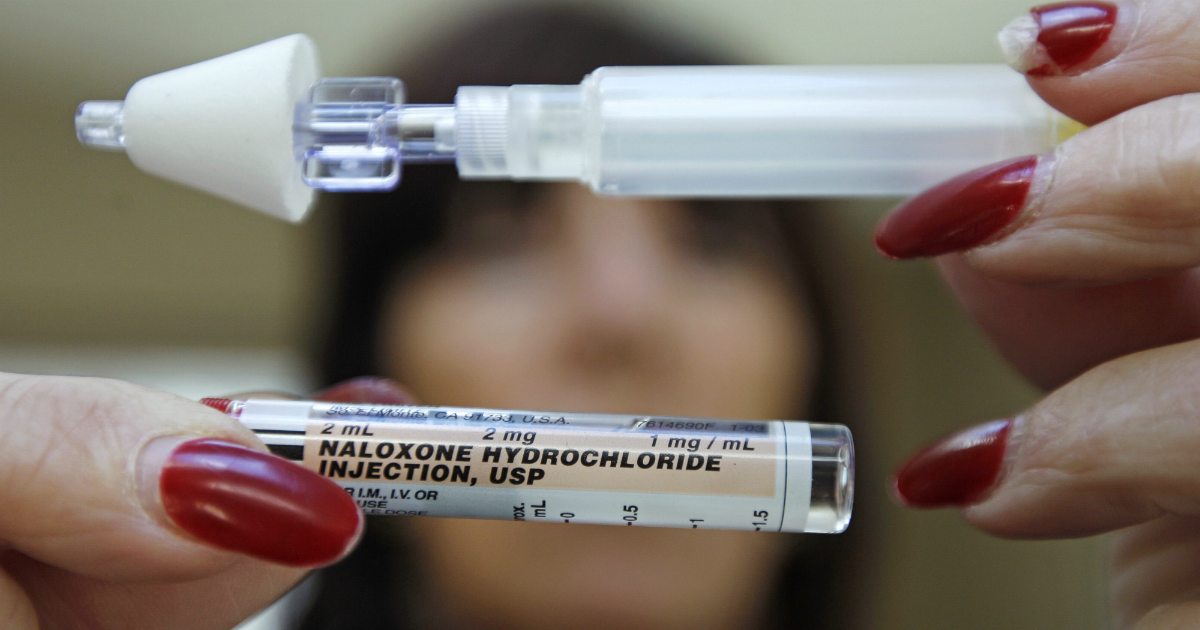 AP/Charles Krupa - apimages.com
AP/Charles Krupa - apimages.com
"The way I've always thought of libraries are a responsive space that responds to the community needs," Kowalski told NPR. "And in the situation that we're in, one of the needs are we have to help people who may be engaging in behaviors not many are comfortable with — and when someone's overdosing, that's a need."
Even as local libraries are stepping up, though, the federal government is threatening to cut $214 million in funds that are distributed to these institutions around the country. These proposed budget cuts would come at a time when libraries are in greater need of financial support to maintain and expand services that many — especially vulnerable populations like the homeless and addicted —have come to depend on.
"America's more than 120,000 public, school, college and university and many other libraries are not piles of archived books," Julie Todaro, president of the American Library Association, said in a press release. "They're trusted centers for education, employment, entrepreneurship and free inquiry at the core of communities in every state in the country – and in every Congressional district. And they’re staffed by the original search engines: skilled and engaged librarians."

